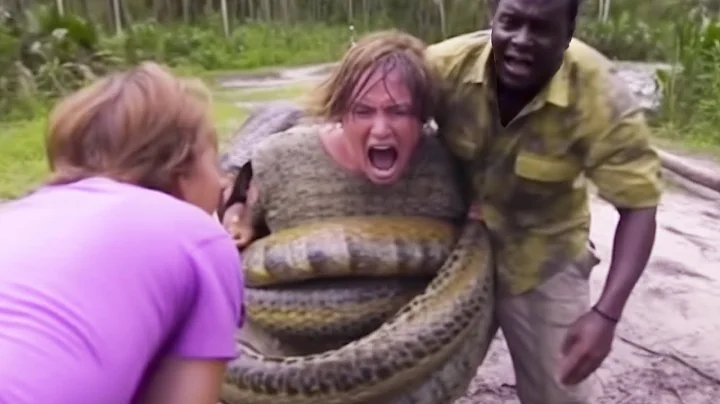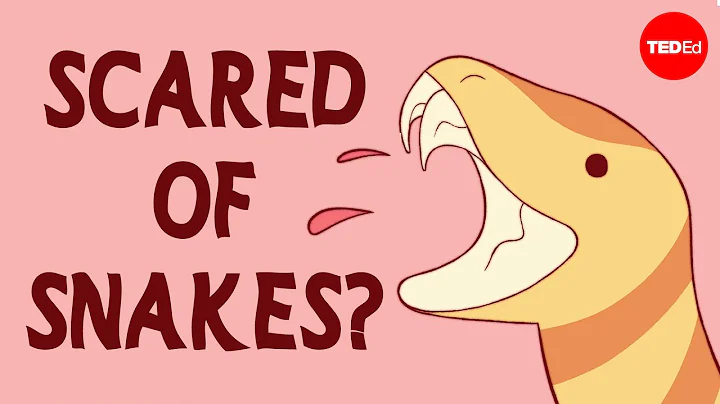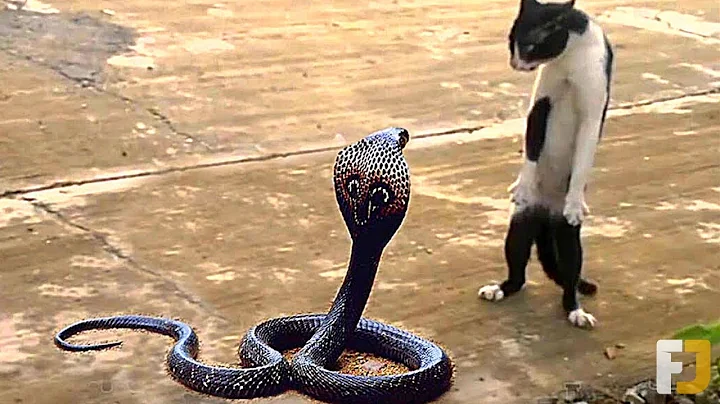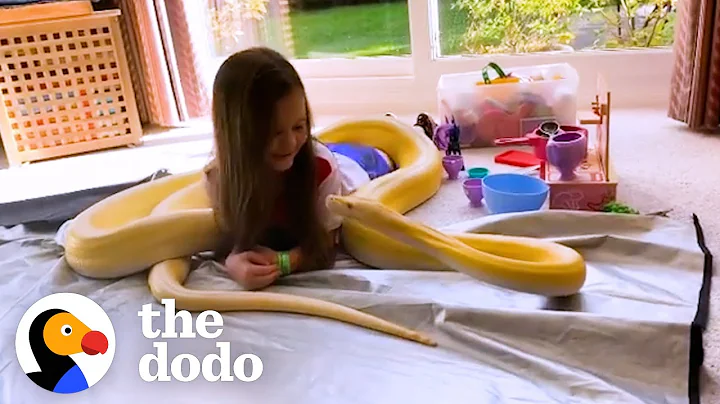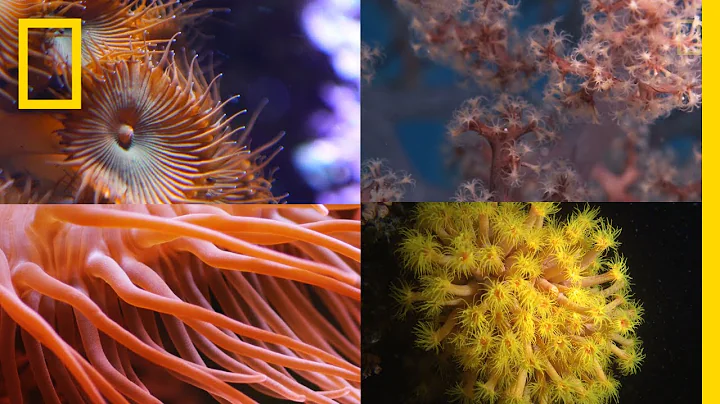In life, almost everyone is afraid of snakes, even people who catch and raise snakes are somewhat afraid of snakes. Even people who have never seen a snake can't help but feel a sense of fear when they first see a strange snake.
"Scientific American" magazine conducted a survey and selected several things that humans are most afraid of. Among them, "snakes" ranked first among the things that humans fear.

Some people will feel a chill down their backs, feel unwell, or even get goosebumps just by looking at pictures of snakes.

As the saying goes: "Once bitten by a snake, you will be afraid of well ropes for ten years." However, what is incredible is that in reality, the vast majority of people have never been bitten by a snake. What is the root cause of human beings' fear of snakes? Is it because the snake looks scary? Things are far from simple.

Many scientists have always been interested in this and are constantly actively studying the truth behind this issue!
How does human beings fear snakes?
Fear is the result of human beings adapting to the environment. It is a common phenomenon for humans to be afraid of snakes.
As for the origin of this fear, some scientists believe that snakes look scary, have slippery bodies, and some are poisonous. People have learned to identify these dangerous animals as they grow up. Some scientists believe that this is an evolved Instinct reaction, no need to learn.

Scientists speculate that humans are afraid of snakes. This may be because humans were injured by snakes during their origins in Africa and passed this fear from generation to generation, continuing and fixing it.

Venomous snakes can reach all land on earth except Antarctica.
Harvard University professor and famous sociobiologist Edward Wilson speculated that venomous snakes may be one of the most threatening animals in human history. If organisms can have this awareness of danger and overcome it, they will have better survival abilities. Huge advantage.

In order to survive or protect those around us, ancient humans had to always be on guard against snakes, which ingrained the fear of snakes into our brains.
So, almost everyone is afraid of snakes. Is it something they learn gradually as they grow up, or is it something they are born with?
Scientists from Germany's Max Planck Institute for Human Cognition and Brain Sciences and other institutions have found the answer from babies. Through a new experiment, they found that babies as young as 6 months old will also react to pictures of snakes when they see them. Instinct fear response.

Scientists showed 6-month-old babies pictures of the same size and color, one part of which was a flower or a fish, and another part of which was a snake. found that when babies saw snakes, their pupils became significantly larger.

In this regard, the researchers explained that the enlargement of the pupils when the light conditions remain unchanged is an important sign that the brain's norepinephrine system is activated and produces a stress response.

In other words, babies are already afraid of snakes before they have the ability to learn fear, which shows that our fear of snakes is engraved in our genes and has been inherited to this day. It has long been ingrained in our "hearts".

Moreover, human beings' fear of snakes will develop faster with age . Some people will even hate snakes extremely when they grow up and will not see anything related to snakes at all. Because the brain is fully mature and has a higher sense of vigilance towards dangerous things, this fear will become more intense.

They only need to imagine a snake-like object as a real snake and associate it with danger, which will produce an inexplicable sense of fear. In psychology, it is called "prepared learning" .

However, some studies have shown that human babies do not feel fear when they see bears, rhinos and other mammals that are also deadly threats. This may be because these animals coexisted with their human ancestors for a shorter period of time before evolution could develop a direct fear response.

Scientists say that humans' fear of snakes is actually a valuable fear, which is of great significance to human survival and reproduction. Otherwise, early humans would easily be bitten or even die by snakes.
Primates are also afraid of snakes
The gene for humans to be afraid of snakes is inherited from generation to generation. Even monkeys, our close relatives, react to snakes with extreme excitement.

Even monkeys who grew up in the zoo and have never seen a snake will immediately alert their companions after seeing a snake for the first time, and can even quickly learn to distinguish between venomous and non-venomous snakes.
Scientists were surprised to find that specialized nerve cells in the brains of macaque monkeys responded to images of snakes.

Venomous snakes first appeared about 60 million years ago. Scientists speculate that in ancient times, snakes may have exerted strong selective pressure on the evolution of primates, because both of them foraged in forests or grasslands.
Extended reading: In addition to snakes, humans are also afraid of these things
In life, in addition to snakes that scare most people, there are many things that make people afraid:
- Spiders
Research has found that women are more afraid of spiders It is 4 times that of men. Scientists believe that this may also be caused by genes.

In primitive societies, women usually encountered spiders when foraging. Out of their natural self-protection ability, they would quickly stay away from spiders. Men usually go out hunting and face large beasts, so they don't take small spiders seriously.
- Height
Scientists once conducted an experiment in which people who were afraid of heights and those who were not afraid of heights were asked to stand on a building of the same height to judge the height. As a result, those who were not afraid of heights judged the height 3 meters higher, while those who were not afraid of heights judged the height 12 meters higher. rice.

The reason for fear of heights may be that the brains of those who are afraid of heights exaggerate heights. However, the instinctive fear of heights is also a kind of protection for oneself.
Research has found that babies are born with a fear of heights. Children who are afraid of heights when they are young tend not to be injured when falling from heights.
- Darkness
Among people who are afraid of the dark, most are children. In fact, this is also related to human evolution.
For children, they are naturally afraid of being alone, afraid of their parents leaving, it is dark, and everything is "unknown". Staying with their parents is the safest and most beneficial way for human babies to survive.

No matter what we are afraid of, most of them have one thing in common: they are potentially dangerous to people. Fear is a survival instinct that we humans inherited from our prehistoric ancestors.
I can’t help but sigh, the evolution of human beings is so amazing and full of wisdom!



